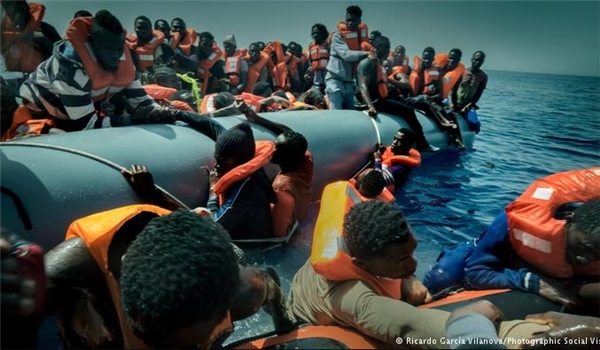
RNA - The global compact is a major intergovernmental process, to which IOM, the UN Migration Agency, is extending technical and policy expertise as requested by Member States until its culmination in September 2018. It presents an historical opportunity for achieving a world in which migrants move as a matter of choice rather than necessity, through safe, orderly and regular channels, and in which migration is well governed and able to act as a positive force for individuals, societies and states.
This meeting, the second such Dialogue so far this year, is being held by IOM to create a space for governments and relevant actors to discuss solution-based approaches towards a global compact that reduces vulnerabilities and empowers migrants. Participants will explore all aspects of migrant vulnerabilities from a policy, cooperation and practical perspective.
The problem is, the two-day international gathering fails to include any serious discussions about refugees – millions of them, much less contributions to be made by senior representatives of governments, international organizations, non-governmental organizations, private sector, diaspora and academia to strengthen the position of refugees.
In fact, the lack of refugee discussions is not an inevitable phenomenon but has been caused by deliberate political decisions made in Washington and Brussels. To give just one example, over the past seven years, many Western countries, including the United States, have refused to take in more refugees from war-torn places like Iraq, Syria, Afghanistan and Yemen. Thousands of lives are lost every year in the Mediterranean Sea because land borders are closed to stop refugees from reaching Western Europe.
Through their anti-refugee policies and the lack of effective refugee cooperation, Western governments have weakened International Humanitarian Law. This has been driven not least by government lobbying. What we see is a vicious circle of weakening the United Nations and its global refugee program: the combination of neoliberal ideology, corporate lobbying, Israel-friendly policies, refugee avoidance and International Law evasion has led to the massive weakening of the global refugee program and its ability to provide essential safety and services to millions of refugees.
These failures have been used by the proponents of war and occupation to present migration as the better alternative and to demand its further strengthening. This in turn further weakens the refugee program – and so on… .
In parallel, the same Western strategies and policies that led to the weakening of the United Nations enabled an unprecedented attack on refugees in the West, often at the expense of those who are still stuck in devastated countries such as Syria.
Responding to the experiences and testimonies from the ground about the devastating impacts of US-led wars in the Middle East, counter-movements have to emerge in many parts of the world. Over the past 16 years there has been a significant rise in the number of communities that have taken a direct hit from the United States and its allies - a phenomenon called “regime change”. Regime change refers particularly to the return of puppet regimes to power.
Even the firm opposition to regime change at the UN and protection of refugee rights is showing cracks. Many Member States say a binding international treaty would help them with their responsibilities to respect human rights and protect refugees.
To be sure, the key actors in the Global Compact for Migration process have an important role to play in the implementation process of this agenda, as protection of global human rights for refugees will require large-scale changes in national laws and practices. Instead of further promoting the misleading discourse of ‘migration’ and ‘corporate partnerships’ between inherently unequal partners, a fundamental change of course is necessary. In order to achieve this, the UN has to reclaim the global refugee policy space.
Governments should strengthen refugee funds at all levels; fundamentally rethink their approach towards war and occupation; reconsider joining disruptive military alliances with the United States; create binding rules on refugees and human rights; take effective measures to dismantle anti-Muslim lobby power; and prevent the further division and devastation of sovereign states in Global East.
847/940